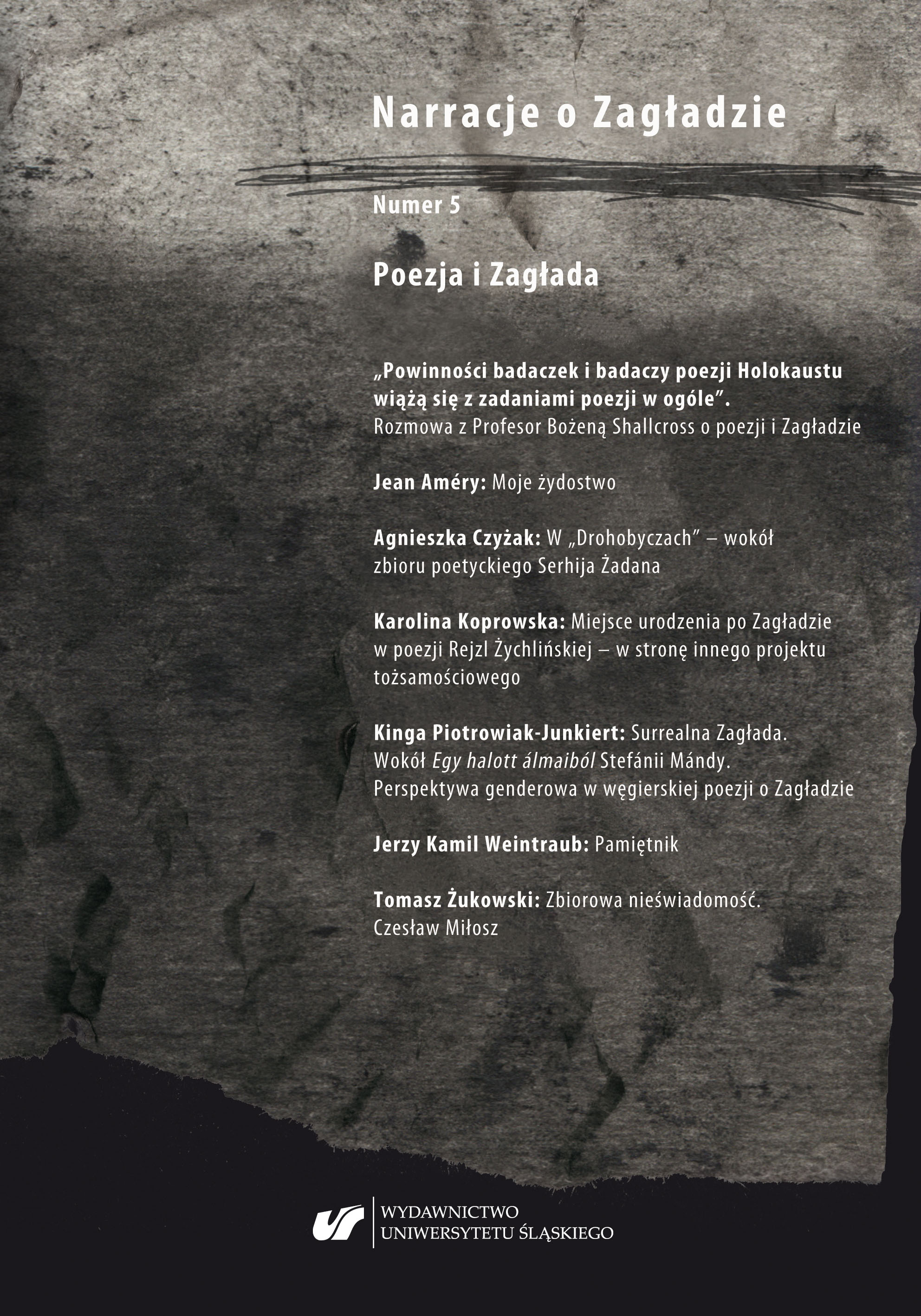„Nie chcę łaski zrozumienia” Pamięć Bełżca w wierszach Seweryna Pollaka
“I do not want your mercy of understanding” Remembering Bełżec in Seweryn Pollak’s Poetry
Author(s): Agata Szulc-WoźniakSubject(s): Jewish studies, Polish Literature
Published by: Wydawnictwo Uniwersytetu Śląskiego
Keywords: Seweryn Pollak; Rudolf Reder; Belzec/Bełżec; extermination camp; Holocaust; poetry
Summary/Abstract: This article is devoted to two poems by Seweryn Pollak that focus on the extermination camp in Bełżec. When Pollak finished working on the aforementioned texts (in the 1970s), this place was still unknown, commemorated in a fragmentary and misleading way (precisely, the memorial did not mention the Jewish people were exterminated in Bełżec). Interventionist, Pollak’s works call for truth, and by that they formally resemble his firm stands against violence and lies (including the year 1968, when the state power was abused). Pollak’s poems follow his views and the ethos of a translator. Being one himself, the poet patiently listens to the reproaches in other languages. Although deceptively similar, “Bełżec” and “Z Bełżca” [“From Bełżec”] are poems that differ in a very peculiar way. The perspective of a visitor focusing on the topography of a place is replaced with that of a participant who suffers along with the victims. It is by all means a curious case; Pollak – a Jewish poet who survived the Holocaust – decides to take the responsibility for commemorating “the great family that was burned.”
Journal: Narracje o Zagładzie
- Issue Year: 2019
- Issue No: 5
- Page Range: 218-227
- Page Count: 10
- Language: Polish

